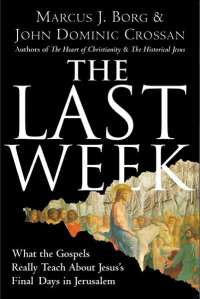[L]ong before animal sacrifice was invented, human beings knew two rather basic ways of creating, maintaining, or restoring good relations with one another–the gift and the meal. Each represents the external manifestation of an internal disposition. Each has its own delicate protocols of what, when, why, to whom, and by whom. The proffered gift and the shared meal are probably the most ancient forms of human interaction…
How, then, did people create, maintain, or restore good relations with a divine being? What visible acts could they do to reach an Invisible Being? Again, they could give a gift or share a meal. In sacrifice as gift, an offerer took a valuable animal or other foodstuff and gave it to God by having it burned on the altar. In this case, the animal was totally destroyed at least as far as the offerer was concerned. No doubt the smoke and smell rising upward symbolized the transition of the gift from earth to heaven, from human being to God. In sacrifice as meal, the animal was transferred to God by having its blood poured over the altar and was then returned to the offerer as divine food for a feast with God. In other words, the offerer did not so much invite God to a meal as God invited the offerer to a meal.
That understanding of sacrifice clarifies the etymology of the term. It derives from the Latin sacrum facere, “to make” (facere) “sacred” (sacrum). In a sacrifice the animal is made sacred and is given to God as a sacred gift or returned to the offerer as a sacred meal.
I’m drawn to this selection because I’ve never heard a more satisfying sermon or lecture on the different things that sacrifice seems to mean in the Old Testament, or a more illuminating connection-in-brief made between the Mosaic sacrificial system and the Eucharist.
[N.B.: This is a particularly interesting knitting-together because Borg and Crossan go to great (often awkward, in this book at least) lengths to make sure we know they believe that any form of satisfaction or substitutionary atonement is not only wrong but responsible for horrific violence in the name of God through history.]


That is an amazing insight.
It is, isn’t it? The book as a whole is really interesting for its history as well as how these particular, non-traditional scholars understand the theology of the New Testament.